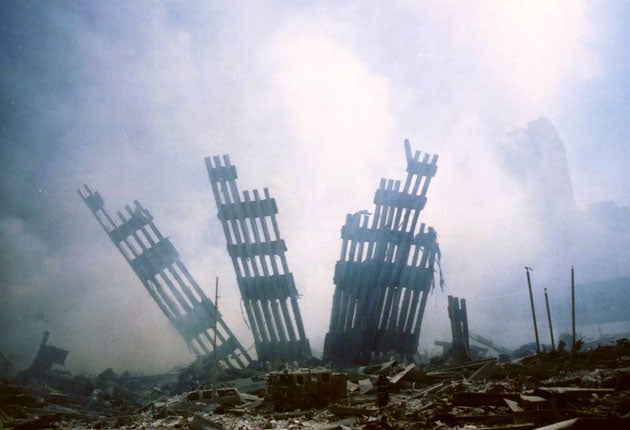A million people started smoking again in the wake of 9/11, a new study has revealed
Scientist is advocating free nicotine replacement therapies after estimated 1.3 million former smokers picked the habit back up after the terrorist attack in 2001

A scientist has called for free nicotine replacement therapies to be made available after traumatic events, following research that showed a million former smokers started smoking again in the aftermath of 9/11.
Experts believe this sharp increase was due to the stress people experienced during and after the tragedy, which claimed nearly 3,000 lives.
Smokers who had previously managed to kick the habit accounted for a “significant” 2.3 per cent rise in smoking rates across the US in the wake of the terrorist attacks on New York City and Washington DC on September 11, 2001.
Lead researcher Dr Michael Pesko at the Weill Cornell Medical College, in New York, said the investigation “sheds light on a hidden cost of terrorism”.
Scientists studied data from phone surveys carried out in every state across America to track rates of risky behaviour such as smoking and drinking habits. Researchers examined the responses of 1,657,985 adults and results suggested that during the fourth quarter of 2001 and 2003, between 900,000 and 1.3 million adult former smokers had started using tobacco again.
In contrast, there was no increase in smoking rates after the Oklahoma City bombing in 1995 which claimed 168 lives.
Dr Pesko said: “This study provides the first unbiased estimate of the effect of stress on smoking, and the finding that there was such a big increase in smoking nationwide, seemingly due to one event, is extraordinary.
"I was really surprised to find that former smokers across the nation resumed their old habit. I was expecting to see impacts just in the New York City area - or, at most, the tri-state area."
He said one possibility would be to introduce programmes that offer free nicotine replacement therapies immediately after an event. ”Another strategy would be to alert health professionals to do more substance abuse screening during regular medical appointments following terrorist attacks, or any such event that is likely to stress the nation“, he added.
The research, reported in the journal Contemporary Economic Policy, suggests that stressful events can have a negative impact on public health.
Additional reporting by AP
Subscribe to Independent Premium to bookmark this article
Want to bookmark your favourite articles and stories to read or reference later? Start your Independent Premium subscription today.

Join our commenting forum
Join thought-provoking conversations, follow other Independent readers and see their replies